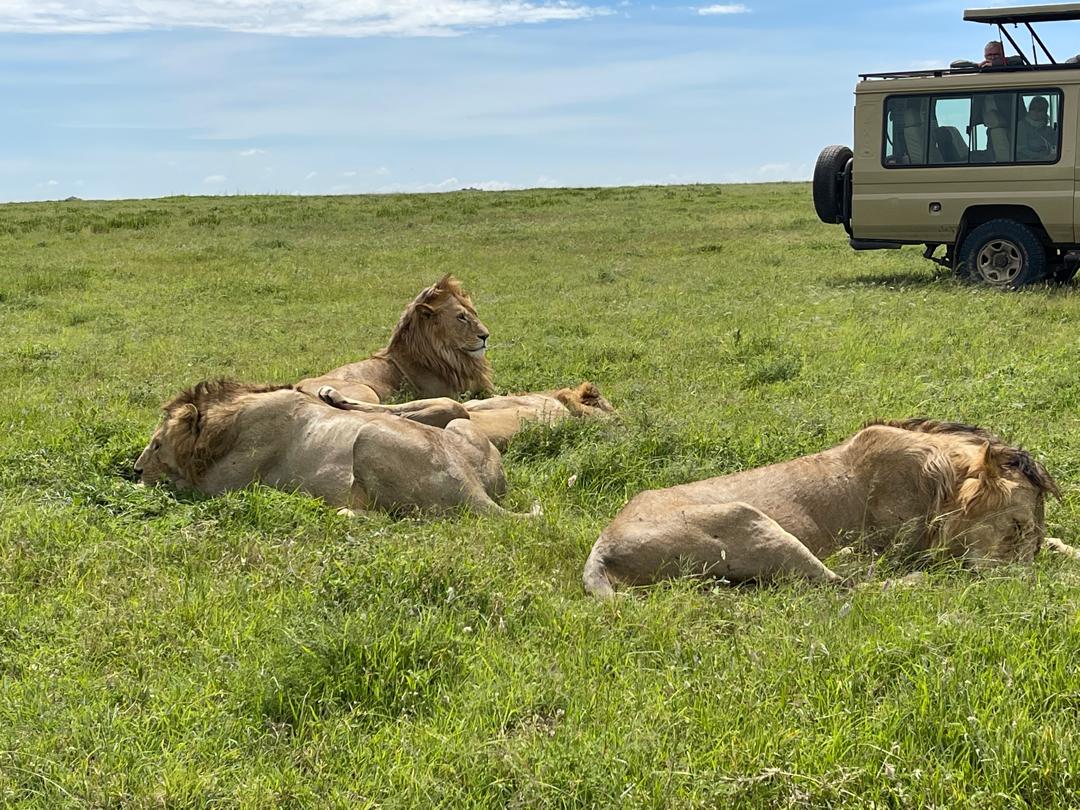Includes
Tanzania landing airport pick up.
Guide driver.
Mineral water (2 bottles per person per day).
All transfers and safari vehicles.
All hotel accommodation.
All hotel meals (breakfast, lunch, dinner, Based on the itinerary).
All National Park fees.
All government taxes.
Important information
1. Vehicle Equipment & Condition
Vehicle Type and Features: Provide details on the vehicle types available (e.g., SUV, camper van, 4x4) and their features (e.g., air conditioning, GPS, safety features).
Pre-Trip Check: Remind customers to ensure their vehicle is in good condition. Suggest checking tire pressure, oil levels, and ensuring all lights are working.
Fuel Requirements: Clarify if the vehicle needs to be returned with a full tank of gas, and if there's a fuel surcharge if it's not.
Insurance & Deposit: Explain insurance coverage options and security deposits, if applicable.
2. Camping & Outdoor Equipment (if applicable)
Gear Provided: List what camping or outdoor equipment is provided (e.g., tents, sleeping bags, cooking supplies).
What to Bring: Suggest items the customer should bring (e.g., personal hygiene products, appropriate clothing, food and snacks).
Safety Gear: Inform customers if safety equipment like fire extinguishers, first aid kits, or portable lights are provided and whether they need to bring their own.
3. Driving Guidelines
Road Conditions: Advise on expected road conditions (e.g., gravel roads, off-road driving) and whether a 4x4 or special driving skills are required.
Route Suggestions: Recommend popular scenic routes or detours, including places of interest, gas stations, or rest areas.
Distance & Timing: Provide an estimated travel time for different sections of the route, as well as rest stops.
Emergency Contact Info: Share a hotline number or contact info in case of breakdowns, accidents, or emergencies.
4. Weather & Seasonal Considerations
Weather Forecast: Remind customers to check the weather forecast before heading out, and pack accordingly (e.g., rain gear, sun protection).
Seasonal Challenges: Explain any seasonal changes, such as snow in winter or extreme heat in summer, and how these may affect the journey.
5. Booking & Payment
Booking Confirmation: Make sure customers understand the booking process, including how to confirm or cancel their booking.
Deposit & Final Payment: Clearly explain deposit requirements and final payment deadlines, as well as accepted payment methods.
Cancellation Policy: Detail your cancellation or refund policy in case of changes to their plans.
6. Local Regulations & Permits
Local Permits or Fees: Inform customers if there are any special permits required (e.g., national park entry fees, campsite reservations).
Respecting Nature & Environment: Advise customers on Leave No Trace principles and how to respect wildlife and nature.
Local Laws: Highlight any local laws they should be aware of (e.g., fire bans, wildlife protection).
7. Health & Safety
First Aid Knowledge: Recommend basic first aid knowledge, especially if they are traveling in remote areas.
Mobile Connectivity: Inform customers about mobile reception availability in certain areas, and whether a satellite phone or GPS device is needed.
Health Precautions: Remind customers to bring any personal medications, and notify them of any health risks in the area (e.g., altitude sickness, allergies).
8. Food & Drinks
Food Storage: If self-catering, recommend coolers or portable fridges for food storage, especially for longer trips.
Water Supply: Advise on where to source drinking water, or whether they need to bring extra water containers.
9. Responsible Travel
Respecting Local Cultures: Encourage customers to learn about and respect local customs and communities along their route.
Environmental Awareness: Encourage eco-friendly practices, like reducing waste, using reusable bottles, and minimizing plastic use.
10. What to Expect During the Event
Time Commitment: Be clear on the time commitment for the event (e.g., duration of the tour, stops along the way).
Group Dynamics: If the tour involves other participants, let customers know about group size, dynamics, and how it may affect their experience.









